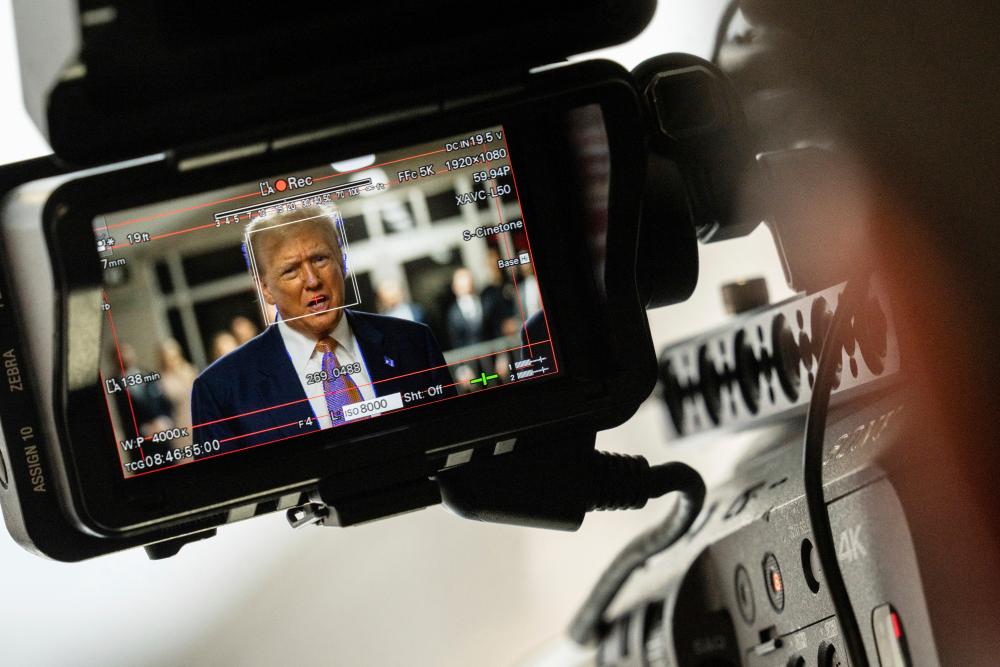Donald Trump and his supporters have launched a concerted campaign against media organizations in the U.S. that have been critical of him, employing lawsuits that experts warn may aim to suppress dissent and drive these outlets out of business. The strategy appears to consist of aggressively pursuing legal actions against what Trump deems “enemies of the people,” demanding significant sums in damages. Such lawsuits can be costly for media companies, even when success seems unlikely. The lawsuits, and Trump’s public threats to “straighten out the press,” indicate a troubling trend toward weaponizing the judicial system against journalists and news organizations, as noted by experts on press freedom.
Recent developments highlight concerns regarding Trump’s litigation tactics. For example, he filed a lawsuit against Iowa pollster J Ann Selzer and the Des Moines Register, claiming “brazen election interference” in relation to a survey that suggested he was trailing his Democratic opponent Kamala Harris. Although Trump won Iowa by a significant margin, he accused the poll and its release of being a calculated effort to skew election results, invoking the Iowa Consumer Fraud Act to justify his actions. Critics of this lawsuit argue that it is a blatant attempt to punish media entities for their critical stance, especially since the poll’s inaccuracy did not affect his eventual victory.
Furthermore, Trump’s legal confrontations with other media outlets have proliferated, including a high-profile settlement with ABC News for $15 million after Trump took issue with comments about a civil suit in which a jury found him liable for sexual abuse but not for rape. Critics argue that Trump’s actions reflect an alarming trend in which he seeks to use litigation as a means of silencing dissent and retaliating against unfavorable coverage. Experts like Floyd Abrams emphasize that the Iowa lawsuit lacks substantial grounds, indicating it may instead be a retaliatory maneuver against those who published material critical of him.
The implications of these legal actions are severe for freedom of the press. The recent settlement with ABC News raises serious concerns that other news organizations might feel compelled to settle frivolous lawsuits to avoid expensive litigation. Experts warn that even baseless lawsuits can consume substantial time and resources—leading to a potential chilling effect on the press, where journalists might exercise self-censorship to evade legal repercussions. The fear of litigation can stifle investigative reporting and diminish the media’s role as a watchdog critical of government actions.
During this period, there remain strong defenses from media representatives. The Des Moines Register stands firmly against Trump’s claims, asserting that their reporting follows ethical journalistic practices and maintains confidence in their methodology. Both the Register and the Knight First Amendment Institute stress the importance of defending First Amendment rights against what they see as an orchestrated attempt to intimidate and undermine critical reporting. They signal a commitment to uphold journalistic standards, even in the face of aggressive legal challenges from a powerful political figure.
In response to these growing concerns, Trump’s spokesperson has framed his legal actions as a necessary measure to enforce accountability among media organizations for what he describes as false reporting that undermines electoral integrity. As the legal landscape continues to evolve under Trump’s influence, the chilling effect on press freedoms remains a critical issue for advocates of free speech, emphasizing the precarious balance between accountable journalism and the risks posed by powerful individuals willing to exploit the courts for personal gain. The situation represents a defining moment for media freedom in the United States, sparking widespread debate about the implications of such tactics for the future of democratic discourse.

